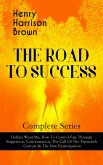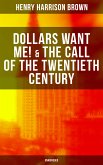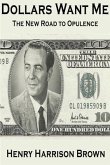In "Dollars Want Me!", Henry Harrison Brown explores the dynamic relationship between individuals and wealth, presenting a compelling philosophical treatise on the nature of money and its profound implications on personal development and success. Written in an engaging style that combines elements of self-help, philosophy, and metaphysics, the book draws from the New Thought movement of the late 19th and early 20th centuries, advocating the belief that thoughts shape reality. Through a series of reflective essays, Brown emphasizes the importance of positive mindset and intention in the pursuit of prosperity, reflecting a societal shift towards embracing psychological principles in economic empowerment. Henry Harrison Brown, an influential figure in the New Thought movement, was deeply inspired by the challenges of his era, which included economic hardship and social transformation. His background as a businessman and spiritual thinker fueled his desire to provide practical guidance to those seeking to transcend their financial limitations. Brown's experiences of struggle and enlightenment serve as a backdrop for his writings, marrying personal anecdotes with broader philosophical concepts about the manifestation of wealth. "Dollars Want Me!" is recommended for readers who are seeking not only financial success but a deeper understanding of their relationship with money. It serves as a vital resource for those interested in integrating spiritual principles with practical application, empowering individuals to change their financial destinies through the art of thought and intention.
Dieser Download kann aus rechtlichen Gründen nur mit Rechnungsadresse in A, B, BG, CY, CZ, D, DK, EW, E, FIN, F, GR, H, IRL, I, LT, L, LR, M, NL, PL, P, R, S, SLO, SK ausgeliefert werden.









